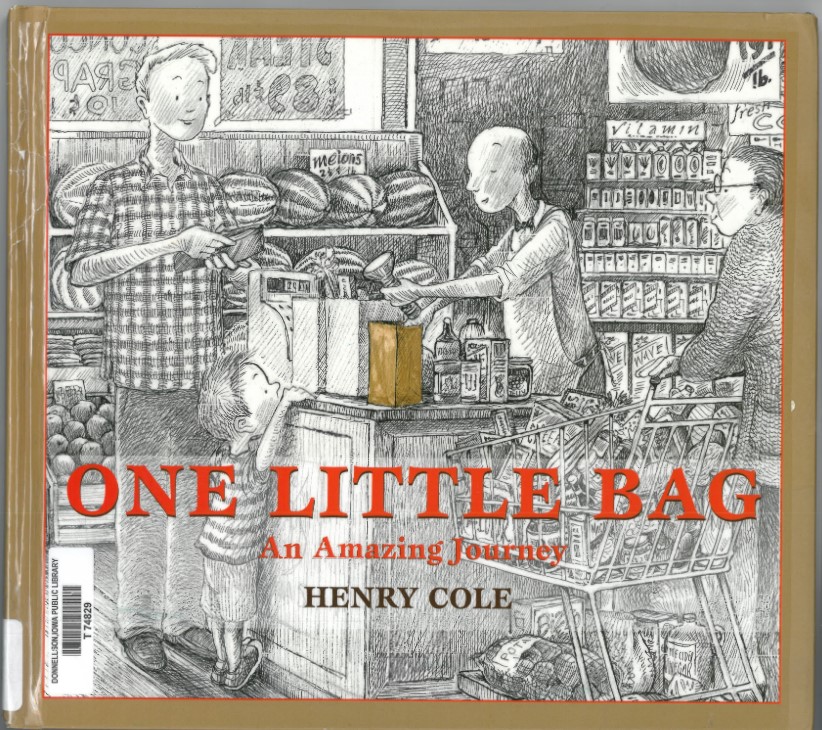Everyone, around the world in fact, is inundated with the Trump phenomenon. Everyone around the world is troubled that their economics are so vulnerable to disruption. This vulnerability has a broader, peripheral circumstance that can explain this vulnerability: environmental resources are running out – whether they are elements, minerals, biomass, space or the effects of global warming.
As the population post cited, in all of human history, the population reached 1 billion. Then from 1800 to 1987, the population grew by 4 billion. What grew as well was the rate of consumption. Human laissez-faire about consumption is reflected in human treatment of the resources available: The world generates nearly two billion tons of municipal solid waste each year (MSW). MSW includes trash from companies, buildings, houses, yards, and small businesses. The United States and China lead the way.
 Mariner’s wife, a librarian, has a program where she reads stories to preschool children. She brought home a book which, with astounding clarity, demonstrated human disregard for environmental resources. The book is ‘One Little Bag – An Amazing Journey’ by Henry Cole. All pages are drawings showing a small boy’s affection for his paper bag by always having it at hand for whatever purpose; it is the tale of a little boy who carried his one original lunch bag to school for over 700 lunches even using it to offer a wedding ring to his girlfriend. The pages also show all the industrial steps required to make a paper bag from chopping down the tree to paper manufacture, delivery, etc. One cannot read this simple story without realizing how trashy humans are. What is important is this trashy behavior does not show concern for the more important issue: disappearing resources.
Mariner’s wife, a librarian, has a program where she reads stories to preschool children. She brought home a book which, with astounding clarity, demonstrated human disregard for environmental resources. The book is ‘One Little Bag – An Amazing Journey’ by Henry Cole. All pages are drawings showing a small boy’s affection for his paper bag by always having it at hand for whatever purpose; it is the tale of a little boy who carried his one original lunch bag to school for over 700 lunches even using it to offer a wedding ring to his girlfriend. The pages also show all the industrial steps required to make a paper bag from chopping down the tree to paper manufacture, delivery, etc. One cannot read this simple story without realizing how trashy humans are. What is important is this trashy behavior does not show concern for the more important issue: disappearing resources.
Wastefulness is not limited to MSW. About four or five years ago, mariner watched a TV interview with a Federal Department head (mariner apologizes for forgetting the name). He was an advocate for expanding our ability to sustain natural resources in order to offset the impact of increasing consumption caused by rapid population growth. He addressed many industrial practices and the careless lack of concern by humans who consume large, irreplaceable areas of the environment just for profit or pleasure.
The Department Head went so far as to challenge lawns. “We need the space to grow food! Every bit of space around the home should be dedicated to self sufficiency, to help ease the pressure caused by disappearing food sources.”
It isn’t just food. Trickling through the news today is the concern for how much electricity and water the new computer age consumes. Computers alone have a special shortage in several minerals including Lithium, Cobalt and Zinc. Microsoft has just contracted the use of a nuclear power plant.
Mariner has a personal example: He and his wife maintain bird feeders. Many who offer this service find it invaded by squirrels. Mariner disregards this complaint knowing that he and his fellow Homos have leveled the natural environment of the squirrel to build huge, clunky houses, streets, tennis courts and businesses. The least we Homos can do is to be sympathetic to the shortage of food for the squirrel and any other wildlife that may still live here. It is interesting that only Homos need 1,200 square feet for a nest, plus lumber, steel, plastic, electricity, heating fuel, TV, a phone, a garage and two stories. Meanwhile, tigers and elephants are disappearing and wolves can’t live in the Midwest which is their natural environment because Homos will shoot them.
This peripheral information may shed light on why economies are not robust, why food and energy prices continue to rise and why every planet resource is at risk.
Ancient Mariner
